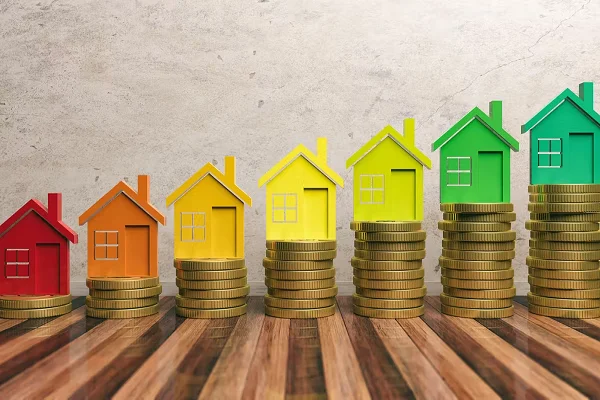Energy Efficiency Upgrade Costs a Major Concern for British Households

Research suggests that most UK households are concerned about climate change and believe that steps need to be taken to safeguard the environment for future generations. A recent study conducted by the Office for National Statistics found that three in four (76%) Brits believe that climate change is a pressing issue that should be prioritised.
However, a separate study conducted by Cornerstone Tax found that a sizeable proportion of homeowners are being discouraged from boosting the energy efficiency of their properties due to the high costs involved. Around 45% of homeowners have investigated the prospect of making their homes more energy efficient but deemed any changes too expensive to go ahead with, without discounts or contributions from the government.
In addition, 22% said that they had taken steps to make their homes more energy-efficient but were unable to go ahead with their planned upgrades due to planning restrictions.
A major source of CO2
With around one-fifth of all CO2 emissions in the UK coming from residential properties, the importance of making collective improvements to household energy efficiency is clear. Consequently, the government recently outlined new legislation that would make it a legal requirement for all homes in the UK to have an EPC rating of C or above by 2035.
Energy efficiency is a priority shared by around 36% of households across the country, according to the report from Cornerstone Tax. However given the potentially high costs of conducting the necessary upgrades and improvements, around a quarter (23%) of those who would like to improve energy efficiency at home have made no effort to do so.
“It’s clear to me that the government will need to go further in incentivizing these types of developments if they wish to see more people carrying them out,” said James Morley, business development director at Cornerstone Tax.
Even so, Mr Morley was keen to point out the potential savings that can be made by conducting energy-efficient improvements to their homes. Examples of this include loft insulation, solid wall insulation, ground-source heat pumps, and double glazing, which, according to Morley, can translate to savings of up to £890 per year in reduced energy costs.
Affordable funding
Commenting on the findings, group chairman of Cornerstone Tax, David Hannah, told Mortgage Introducer that affirmative action from the government was necessary to steer things in the right direction.
Specifically, he suggested that the government should “offer soft loans to householders in the same way they did to businesses during the pandemic”, enabling homeowners to spread the costs of their energy-efficient upgrades over several years at a lower rate of interest.
“While the current reduced VAT charges on energy efficiency expenditure are welcome, they do not cover a wide enough range of products and are ultimately only a small help to hard-pressed families,” he said.
“The net gain of reduced carbon emissions by insulating, allowing double glazing and other energy efficiency and heat/power self-generation measures vastly outweigh the costs in terms of the environment. Again, the government could assist with medium-term loans in the region of 10-year soft loans to enable these properties to be brought up to modern energy efficiency standards.”
